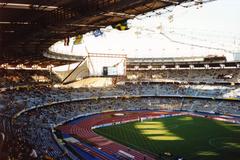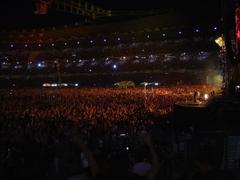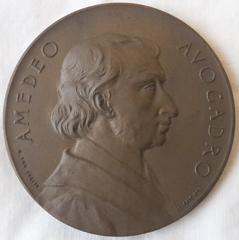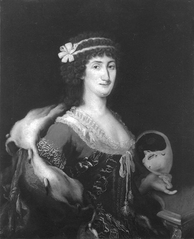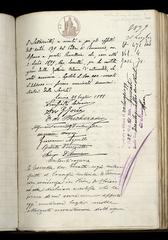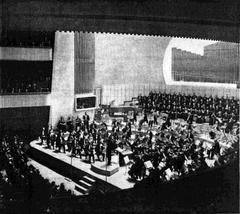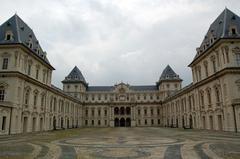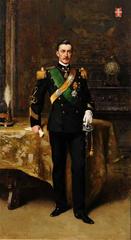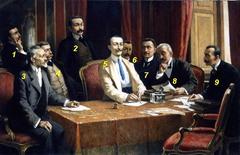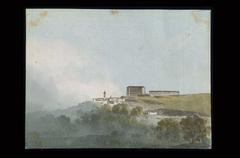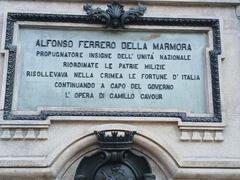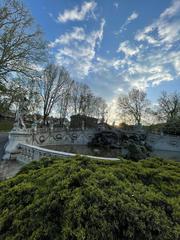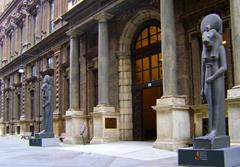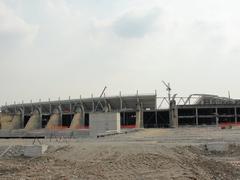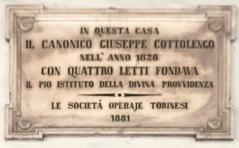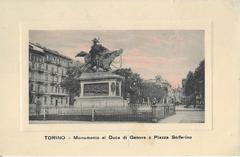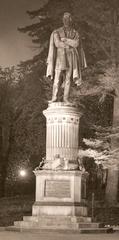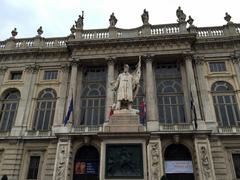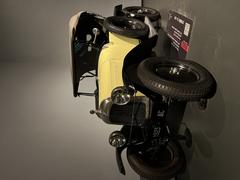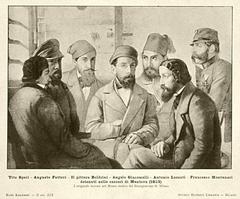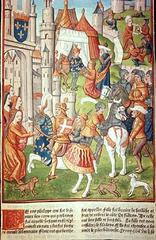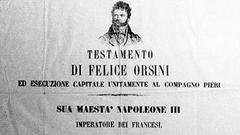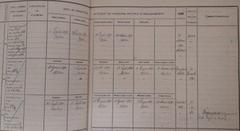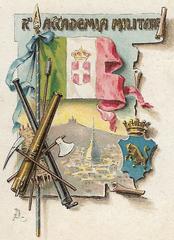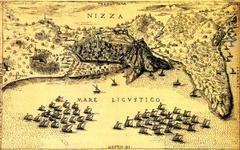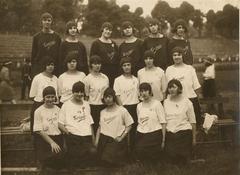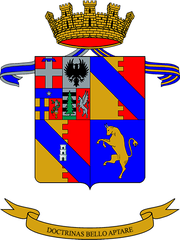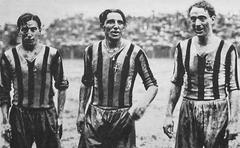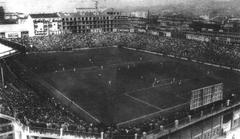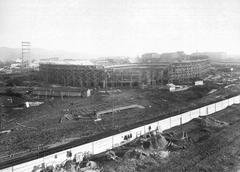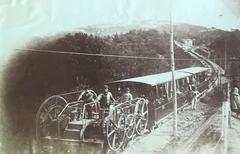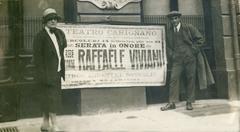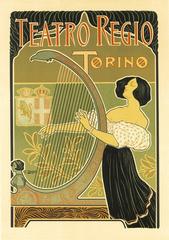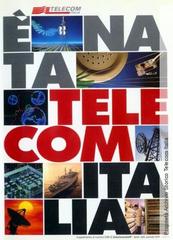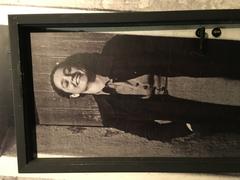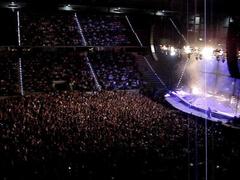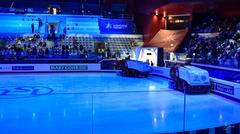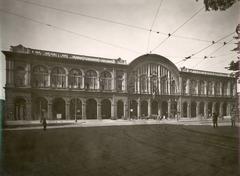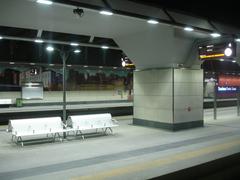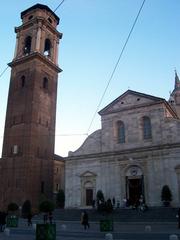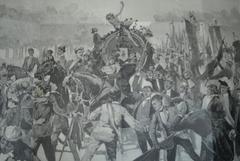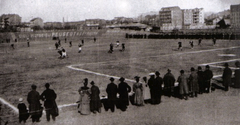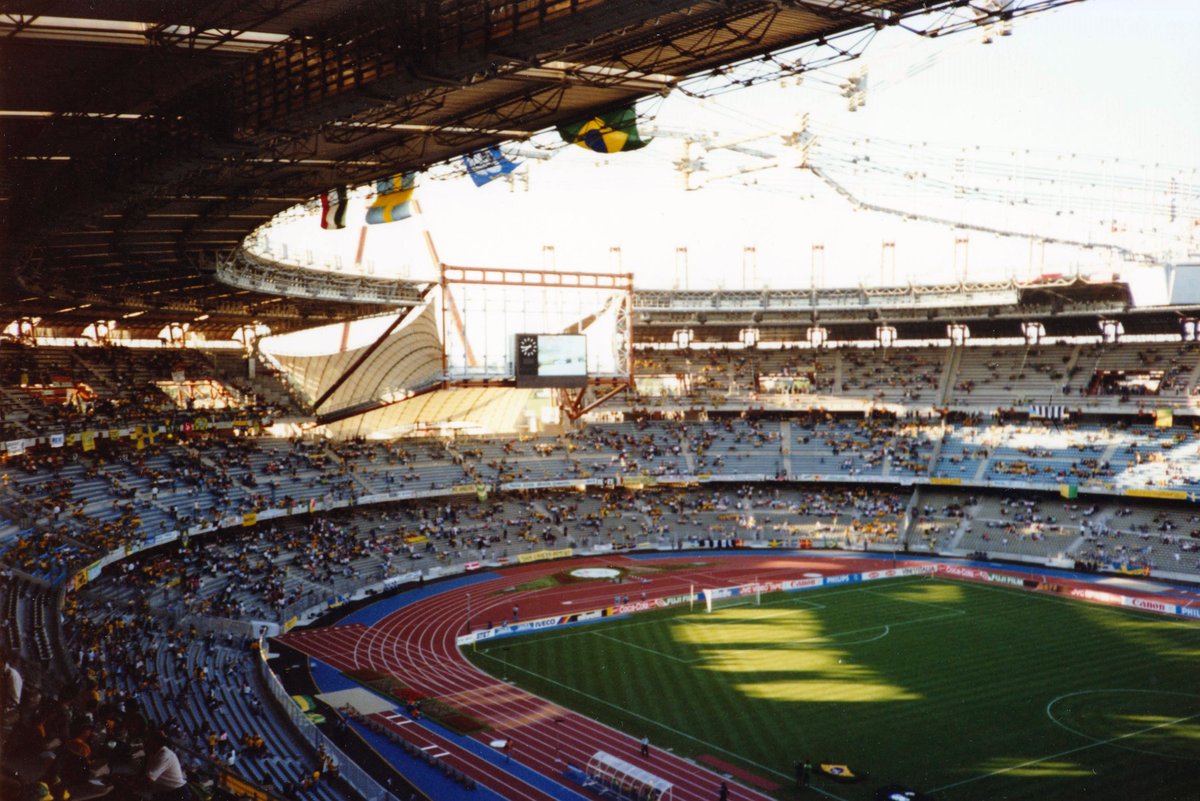
Stadio Delle Alpi Turin: Visiting Hours, Tickets, and Historical Significance
Date: 14/06/2025
Introduction
Stadio Delle Alpi, once a striking symbol of Turin’s sporting ambition, was constructed for the 1990 FIFA World Cup and served as home to both Juventus and Torino football clubs. Although demolished in 2009, its legacy continues to shape Turin’s football culture and stadium architecture. This comprehensive guide explores the stadium’s origins, architectural features, sporting significance, and offers practical information for visitors wishing to connect with its historic site—now occupied by the state-of-the-art Allianz Stadium. Whether you’re a football fan, history enthusiast, or traveler, this article delivers all you need to know to experience Turin’s rich sporting heritage.
(Cult of Calcio, Stadium Guide, Juventus Official Site, Understanding Italy)
Origins and Construction
Stadio Delle Alpi was conceived during the late 1980s to replace the aging Stadio Comunale and elevate Turin’s status ahead of the 1990 FIFA World Cup. Designed by architects Sergio Hutter, Toni Cordero, and Francesco Ossola, the stadium was rapidly constructed between 1988 and 1990 in the Continassa area, on the city’s outskirts—its location immediately controversial among locals.
The stadium opened on 31 May 1990, just in time for the World Cup, with a friendly match featuring a Juventus–Torino team against Porto. It boasted a capacity of over 69,000, making it one of Italy’s largest stadiums at that time (Cult of Calcio, Wikiwand).
Architectural Features and Design
Layout and Structure
Stadio Delle Alpi featured an elliptical, three-tiered seating bowl partly sunken into an artificial hill. Its modernist design emphasized efficiency, with prefabricated concrete elements and a partially subterranean bowl to minimize visual impact.
A distinctive roof, supported by 44 steel masts and tensioned cables, covered 90% of the seating. The roof’s Teflon-coated fiberglass sails allowed diffused natural light and dramatic visual effects. However, the inclusion of an athletics track—insisted upon by the Italian Olympic Committee—compromised the intimacy of the football experience.
Spectator Experience
While the stadium offered expansive views and modern amenities, the athletics track separated fans from the pitch, diluting the typically passionate atmosphere of Italian football. Exposed seating and a peripheral city location further affected comfort and accessibility, leading to declining attendance over time (Sportsrender).
Technical Innovations
Stadio Delle Alpi was awarded UEFA’s Five-Star rating in the late 1990s for its safety and facilities—highlighting its place as a technical pioneer, if not a fan favorite (UEFA Official).
Role in the 1990 FIFA World Cup
Built as a showpiece for Italia ’90, Stadio Delle Alpi hosted six matches, including the legendary semi-final between England and West Germany. These events placed Turin on the global football map, but the stadium’s design flaws—particularly the running track and distant seating—were immediately apparent to supporters and commentators alike (Gentleman Ultra).
Home to Juventus and Torino
Post-World Cup, both Juventus and Torino adopted Stadio Delle Alpi as their home ground. Despite Juventus’s domestic and European successes during this era, average match attendance often fell far below the stadium’s capacity, with some matches drawing fewer than 20,000 spectators. The record low was just 237 fans for a 2001 Coppa Italia match (Cult of Calcio).
Decline, Demolition, and Legacy
Mounting maintenance costs, high rents, and ongoing fan dissatisfaction led to the stadium’s decline. Juventus eventually purchased the stadium in 2002, and both clubs relocated to the refurbished Stadio Olimpico in 2006. Stadio Delle Alpi was ultimately demolished between 2008 and 2009—just 18 years after its opening.
Today, the Allianz Stadium stands on the same site, designed to address its predecessor’s shortcomings with a more intimate, football-focused layout (Understanding Italy).
Visiting the Site Today: Allianz Stadium
Location and Accessibility
The Allianz Stadium is located in the Continassa district, about 7 km from Turin’s city center. It is accessible via public transportation (bus lines 72/72b, matchday tram line 9), car, and taxi. Ample parking and facilities for visitors with disabilities are available (Stadium Guide).
Visiting Hours and Tickets
- Stadium and Museum: Open daily, typically from 10:00 AM to 6:00 PM. Check for holiday and event schedule variations.
- Tours: Guided tours (in multiple languages) include access to the pitch, locker rooms, press zones, and the Juventus Museum.
- Tickets: Purchase online via the official Juventus site or at the stadium box office. Early booking is recommended for popular matches and tours (The Best of Turin).
Facilities and Experiences
- Juventus Museum: Explore the history and achievements of Juventus F.C. through trophies, memorabilia, and interactive exhibits.
- Official Store: Purchase exclusive merchandise, including limited-edition items.
- Dining: Multiple restaurants and cafes are available on-site.
Best Times to Visit
- Football Season: Serie A runs from late August through May; matchdays offer a vibrant atmosphere.
- Weather: Turin is pleasant from late spring to early autumn, with June temperatures ranging 18–26°C (64–78°F) (The Travel Folk).
- Special Events: The stadium hosts concerts, international matches, and corporate events. Check official listings for up-to-date schedules.
Nearby Attractions
- Turin City Center: Landmarks such as the Mole Antonelliana, Turin Cathedral, and the National Museum of Cinema are easily accessible.
- Stadio Olimpico: Another key sports venue in Turin.
- Lingotto Complex and Parco della Pellerina: Popular for sightseeing and relaxation.
Practical Tips for Visitors
- Advance Booking: Secure tickets for matches and tours as early as possible (MominItaly).
- Dress Comfortably: Wear suitable clothing and footwear for walking and standing.
- Language: Italian is primary; English is widely spoken by staff.
- Security: Expect standard entry checks and adhere to stadium policies.
- Photography: Allowed in most areas; flash and tripods may be restricted.
Frequently Asked Questions (FAQ)
Q: Can I visit the original Stadio Delle Alpi?
A: No; the stadium was demolished in 2009. Its legacy is commemorated at the Allianz Stadium and Juventus Museum.
Q: Where can I buy tickets for stadium tours or matches?
A: Tickets are available on the Juventus Official Website and at the stadium box office.
Q: Are guided tours available in English?
A: Yes, tours are offered in multiple languages.
Q: Is the stadium accessible for visitors with disabilities?
A: Yes, the Allianz Stadium has full accessibility features.
Q: What are some nearby historical sites to visit in Turin?
A: The Mole Antonelliana, Turin Cathedral, and several museums are in the city center.
Legacy and Commemoration
Stadio Delle Alpi’s memory is preserved through exhibits at the Allianz Stadium and Juventus Museum, which honor the site’s contribution to Turin’s sporting identity and the evolution of stadium design (Understanding Italy).
Contact and Further Information
- Official Website: Juventus Stadium Official Site
- Visitor Assistance: Local tourism offices and stadium staff are available for support.
- Local Guides: Personalized guided tours can be booked (JuveFC).
- Public Transport Info: Turin Public Transport
Enhance Your Visit
Download the Audiala app for real-time updates, interactive maps, and exclusive content on Turin’s sporting sites. Follow our social media channels for news, special offers, and insider tips on the Allianz Stadium and Turin’s football heritage.
Summary
Stadio Delle Alpi’s story is a testament to Turin’s ambition and the evolving demands of football culture. Its construction for the 1990 FIFA World Cup, iconic events, and eventual replacement by the Allianz Stadium highlight lessons in architectural innovation and fan engagement. Today, visitors can experience this legacy first-hand at the modern stadium and museum, while enjoying all that Turin has to offer.
For the latest visiting hours, ticketing, and event updates, consult official resources and consider the Audiala app for a seamless travel experience.
(Stadium Guide, Juventus Official Site, Cult of Calcio)
Sources
- Stadio Delle Alpi: History, Visitor Information, and Legacy of Turin’s Iconic Stadium, Cult of Calcio
- Stadio delle Alpi: Architectural Features, Visitor Information, and Legacy in Turin, Official Turin Tourism
- Stadio Delle Alpi: Visiting Hours, Tickets, and Its Role in Turin’s Sporting History, Stadium Guide
- Visiting Stadio Delle Alpi and Allianz Stadium in Turin: Hours, Tickets & Tips, Understanding Italy
- Juventus Official Website - Tickets & Tours, Juventus
- UEFA Official
